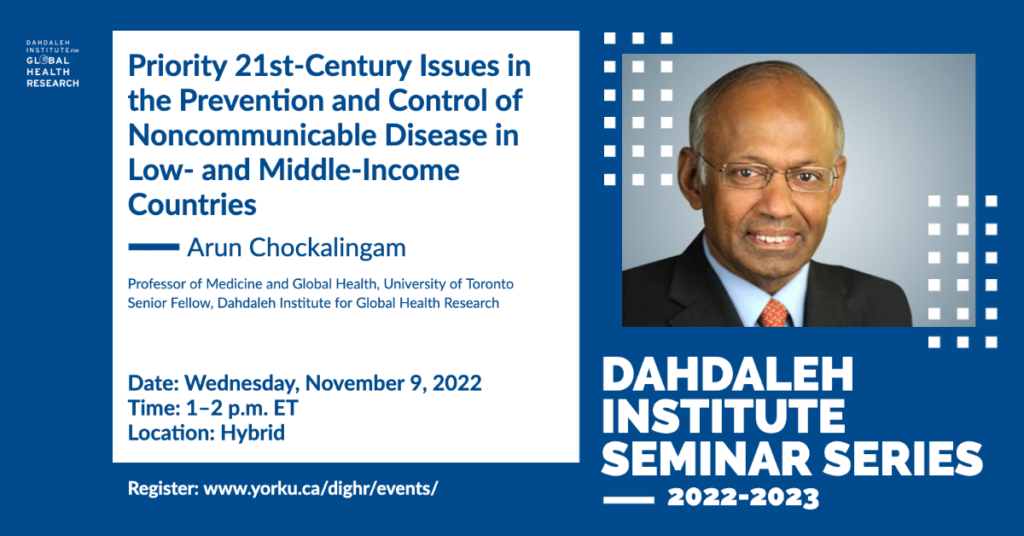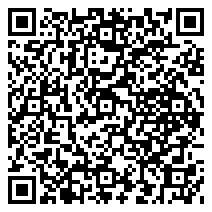Priority 21st-Century Issues in the Prevention and Control of Noncommunicable Disease in Low- and Middle-Income Countries, with Arun Chockalingam
The human body is a replica of the universe or a planet. Any imbalance in the human body leads to a disease state, be it communicable or noncommunicable. Similarly, the imbalance we create in the planet results in planetary damage, which in the long run leads to the fury of the planet and natural calamities. Humans are the masters of their own destiny.
Noncommunicable diseases (NCDs) have mostly been acquired as we evolved. Their root causes are based on the way we live, the way we behave, the way we eat. As countries evolve economically, our lifestyles and behaviour change in comparison to the previous generation.
As a consequence of economic growth, a small percentage of people tend to accumulate wealth, widening the gap between the haves and have nots. This divide makes it unaffordable for most to meet their basic needs. This disparity occurs both between high-income countries (HICs) and low- and middle-income countries (LMICs) and within countries.
The issues of the 21st century demand a major change in the way we think and act to protect the health of individual citizens, the nation, and the planet. The call to order includes equitable and sustainable health for all.
In this seminar, Dr. Arun Chockalingam will discuss all three thematic areas of the Dahdaleh Institute for Global Health Research: planetary health, global health and humanitarianism, and global health foresighting.

Speaker profile
Arun Chockalingam is a professor of global/public health and medicine at the University of Toronto. He was the founding director of Global Health at the University of Toronto’s Dalla Lana School of Public Health (2013-2018), founding director of the Office of Global Health at the National Heart, Lung, and Blood Institute, US NIH (2010-2013), founding director of Global Health at Simon Fraser University, Vancouver (2005-2010), and an academic and health researcher for over 40 years. He has served in key executive positions at the Canadian Institutes of Health Research (CIHR), Health Canada, and the World Hypertension League.
Dr. Chockalingam is passionate about global health research, particularly on non-communicable disease (NCD) prevention and control in low-and middle-income countries. He has established research collaborations in China, India, Germany, the United States, Kenya, Ghana, Bangladesh, and many other countries. He has published over 180 papers, 11 book chapters, and 2 books, and he is currently the editor-in-chief of the International Journal of Noncommunicable Diseases and an editorial board member and reviewer for numerous medical and health journals. He has been a reviewer for research granting agencies such as CIHR, the NIH/NHLBI, and the European Commission. He has also organized several national and international conferences in Canada and abroad. To his credit, he was one of the authors of the United Nation’s Resolution 66-A (2011) on Prevention and Control of NCD. He is the Chair of the World NCD Congress 2023 at Toronto.
Dr. Chockalingam is a fellow of the AHA (FAHA), the American College of Cardiology (FACC) and the International Academy of Cardiovascular Sciences (FIACS). He has also received many prestigious awards including the CCS’s Harold Segal Award of Merit (1998), the CIHR President’s Recognition Award (2005), the Blood Pressure Canada’s George Fodor Award (2007), the Canadian Association of Physicians of Indian Heritage’s Medal of Honour (2007), and the ACC's Simon Dack Award (2013). He is a recipient of Lifetime Achievement Award from the Canada India Network Society (2018).
He climbed and summited the glacier-covered Mount Kilimanjaro (5,895 metres (19,341 ft) above sea level), also called the Roof of Africa, in 2002. He climbed and circumambulated Mount Kailash (5,319 m (17,451 ft) above sea level) in 2016.
Register below and join us on Wednesday, November 9, at 1 p.m.
RSVP
Registration for this event has ended.
Thank you for your interest in this seminar.
Please find the recap and recording here.

